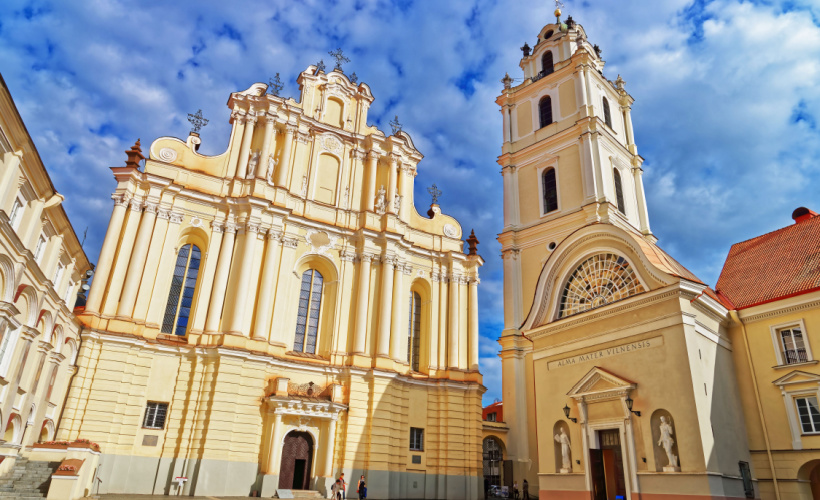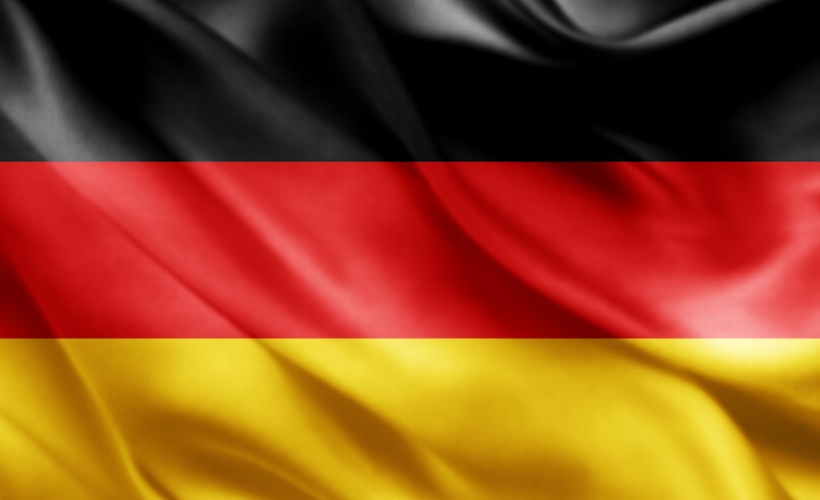This 1-day conference – organised by the Baltic Geopolitics Programme of the University of Cambridge’s Centre for Geopolitics and the University of Greifswald’s Interdisciplinary Centre for Baltic Sea Region Research (IFZO) – investigates Germany’s changing geopolitical orientation in the wake of the Zeitenwende and its impact on the relationships between Germany, the other Baltic Sea states, and the security of the region as a whole.
In recent decades, Germany has had to re-evaluate its position following a series of transformative events, from the fall of the Berlin Wall, German reunification, the eastwards expansion of NATO and the EU, to the Russian invasion of Ukraine in February 2022. This conference focuses on the impact of this reassessment for international security and relationships in the greater Baltic Sea region.
This event is generously sponsored by the German Academic Exchange Service’s (DAAD) Cambridge Research Hub for German Studies.
Programme
09.15 – 09.30 Introduction and welcome
• Prof Brendan Simms, Director, Centre for Geopolitics, University of Cambridge
• The Rt Hon Charles Clarke, Joint Programme Leader, Baltic Geopolitics Programme, Centre for Geopolitics, University of Cambridge
09.30 – 10.15 Keynote: Zeitenwende, the Russia Problem, and Germany’s changing role in the Baltic – A historical perspective
• Prof Kristina Spohr, Professor of International History, London School of Economics and Political Science
10.15 – 11.30 Panel 1: The evolution of German approaches to the Baltic
The Baltic in the German cultural imagination since 1800
• Dr Anita Bunyan, Fellow and Director of Studies in Modern Languages, Gonville and Caius College, University of Cambridge
Germany’s historical relations with the East Central European region of the Baltic Sea
• Prof Karolina Wigura, Member of the Board, Kultura Liberalna Foundation and Associate Professor, Faculty of Sociology, University of Warsaw
Germany’s look at Estonia: From ignorance to partnership
• Christian Schlaga, German Ambassador to Estonia (2015–2019)
German public perceptions of the Baltic region since the 1980s
• Prof Jörg Hackmann, Professor at the Institute of History and Director of the International Centre for Interdisciplinary Studies, University of Szczecin
Chair: Dr Alexander Drost, Scientific Director of the Interdisciplinary Centre for Baltic Sea Region Research (IFZO), University of Greifswald
11.30 – 11.45 Coffee break
11.45 – 13.00 Panel 2: Russia, Ukraine and Germany’s new era of military engagement – Domestic attitudes, regional reactions, NATO responses
The military role of Germany in the Baltic region
• Brig Gen Torsten Gersdorf, German Defence Attaché, London
From Nord Stream to NATO’s eastern flank: How the Russo-Ukrainian War has (not) changed Germany’s strategic culture and NATO alliance solidarity
• Dr Timo Graf, Scientific Senior Councillor, Centre for Military History and Social Sciences of the Bundeswehr
Hannibal ad portas: Vantage points, losses and benefits
• Maira Mora, Director General of the Council of the Baltic Sea States (2016–2020) and Head of the EU Delegation to Belarus (2011–2015)
Zeitenwende: With or without a question mark?
• Matthias Sonn, German Ambassador to Lithuania (2019–2023)
Chair: Dr Andris Banka, Senior Researcher and Lecturer, Interdisciplinary Centre for Baltic Sea Region Research (IFZO), University of Greifswald
13.00 – 14.00 Buffet lunch
14.00 – 15.15 Panel 3: From Energiewende to Zeitenwende? The energy crisis, transition, and new visions for German-Baltic energy security
Emerging from the energy crisis: What next for European and German gas security?
• Dr Katja Yafimava, Senior Research Fellow, Oxford Institute for Energy Studies
A nuclear and coal exit, a renewables boom, and a broken gas bridge: The politics of Germany’s move to climate neutrality in a shifting geopolitical landscape
• Sven Egenter, Editor in Chief, Clean Energy Wire CLEW and Executive Director, 2050 Media Projekt gGmbH
Energy security in the Baltic Sea region going forward
• Dr Izabela Surwillo, Senior Researcher, Danish Institute for International Studies
Chair: Trevelyan Wing, Baltic Fellow, Centre for Geopolitics, University of Cambridge
15.15 – 15.30 Coffee break
15.30 – 16.30 Panel 4: Rethinking the Baltic – Contemporary German discourses
Zeitenwende contested: The party politics of security and defence policy in the shadow of Russia’s war against Ukraine
• Prof Wolfgang Wagner, Professor of International Security, Vrije Universiteit Amsterdam
All quiet on the eastern flank? Opportunities and challenges for German-Lithuanian cooperation after the Zeitenwende
• Dr Benjamin Tallis, Senior Research Fellow and Head of Action Group Zeitenwende, German Council on Foreign Relations (2022–2024); Senior Associate and Director, Democratic Strategy Initiative, Centre for Liberal Modernity (2024–Present)
Anchoring the Zeitenwende at home: Insights from the European election campaign trail in times of rising populism and enduring pacifism
• Dr Tobias Cremer MEP, Member of the European Parliament for the Social Democratic Party (SPD) and former Baltic Desk Officer, German Federal Foreign Office
Chair: Prof Margit Bussmann, Professor of International Relations, Interdisciplinary Centre for Baltic Sea Region Research (IFZO), University of Greifswald
16.30 – 17.30 Roundtable: The impact and future of the Zeitenwende
• Matthias Sonn, German Ambassador to Lithuania (2019–2023)
• Maira Mora, Director General of the Council of the Baltic Sea States (2016–2020) and Head of the EU Delegation to Belarus (2011–2015)
• Dr Benjamin Tallis, Senior Research Fellow and Head of Action Group Zeitenwende, German Council on Foreign Relations (2022–2024); Senior Associate and Director, Democratic Strategy Initiative, Centre for Liberal Modernity (2024–Present)
• Dr Victoria Vdovychenko, Program Director for Security Studies, Centre for Defence Strategies and Co-Director for the Future of Ukraine Project, Centre for Geopolitics, University of Cambridge
Chair: Prof Brendan Simms, Director, Centre for Geopolitics, University of Cambridge
17.30 – 19.30 Drinks reception







